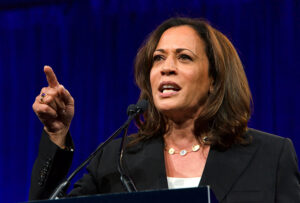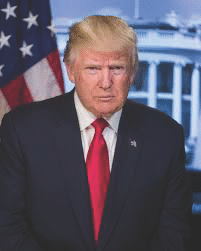
By Charles Gibson
The American presidency is not just a position; it’s the most powerful seat in the world. Who they choose to occupy that office says as much about their society’s values and aspirations as it does about the individual they elect. The choices they make in this arena have profound implications, not just for the immediate future but for generations to come.
As the 2024 election approaches, two starkly different figures are poised at the center of the debate: Kamala Harris and Donald Trump. Harris represents the possibility of breaking one of the highest glass ceilings, potentially becoming the first woman to hold the presidency. On the other hand, Trump, a man with a deeply controversial past, including legal convictions, seeks to reclaim the office he once held. The contrast between these two candidates offers a unique lens through which to examine the messages they are sending to the next generation of Americans.

What does it mean for society if they elect a woman to the presidency? For many, it would signal a monumental step forward, particularly for women and girls who have long been told—either implicitly or explicitly—that there are limits to what they can achieve. Seeing a woman in the Oval Office would validate the belief that gender is not a barrier to leadership, that women are indeed equal to men in every respect, and that the highest office in the land is within their reach.
But this narrative has a darker underbelly. What does it say about their society if they are to elect a man with a history of legal convictions and deeply troubling behavior? What message does it send to young boys, who are still forming their ideas about manhood and success, if they place someone like Trump back in the presidency? The implications are chilling. It suggests that one’s character and actions are secondary to one’s ability to stoke division and appeal to the basest instincts of a significant portion of the electorate.
For tens of millions of Americans, Trump’s appeal lies not in his policies or his vision for the country, but in his ability to provide them with a narrative that justifies their fears, prejudices, and frustrations. By overlooking his past and embracing his rhetoric, they are effectively endorsing a version of manhood that is devoid of accountability and decency.
The presidency is more than just a political office; it’s a symbol of what they aspire to be as a nation. When they choose a leader, they are not just selecting someone to guide them for the next four years they are setting a standard for what is acceptable in their society. The choices they make in this election will reverberate for years, shaping the values and beliefs of future generations.
In the end, the question is not just about who will occupy the White House in 2024. It’s about what kind of country they want to be. Do they want to be a nation that values equality, integrity, and progress? Or are they willing to overlook these principles in favor of a narrative that caters to their darker impulses? The choice is theirs, and the consequences will be profound.


